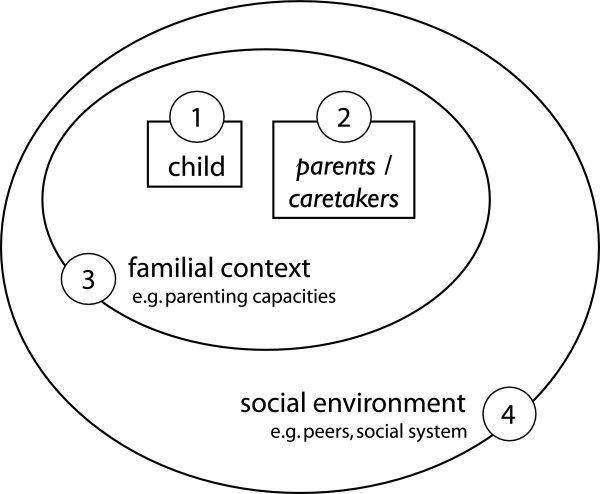Figure 7.
Diagram illustrating the complexities of the investigation. The child with all its strength and vulnerabilities should be the central focus of the investigation. Depending on various factors, e.g. genetic predispositions, children may be strengthened or may become more vulnerable by the knowledge of parental traumatic experiences [45]. Second, the mental health status of the child’s caretakers – in most cases the biological parents – must be considered. The parent itself may not only show PTSD in consequence of the experience of traumatic events, but develop also other pathological behaviour patterns, symptoms (e.g. complex traumatization, depression), or specific personality configurations. It must be considered that people exposed to traumatic events don’t only report negative consequences in their lives. Some show positive changes in their self-perception, in their perception of others and in the objective and meaning of their lives [62,63]. Third, the family context in general must be respected. It implies the impact of siblings or general family functioning, such as patterns of communication, parenting capacity, stress-coping strategies or general worldviews [45,46]. Fourth, the influence of the extra familial support system needs to be taken into account, such as peers, level of integration in the community, which may e.g. concern prejudice of minorities such as refugees or immigrants [45].

